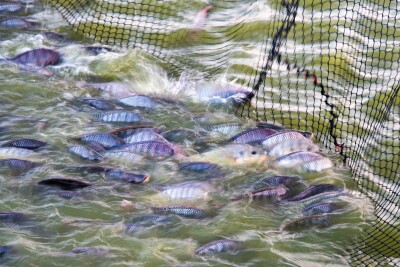The spring of 2017 has brought with it a rush of fisheries research initiatives that aim to propel fishery data into a clearer future.
Bill Karp retired from a career as a leader in fisheries research late last year as the outgoing director of the Northeast Fisheries Science Center in Woods Hole, Mass. He returned to his professional roots in Seattle, where he earned his doctorate in fisheries at the University of Washington in 1975.
Now as part of the Fishing Data Innovation Taskforce, Karp is working to “unlock the full potential of healthier American fisheries.” The task force’s report, “Improving net gains,” highlights inadequate data accessibility and fragmented and outdated data systems as leading problems in effective fishery management.
The report includes what essentially reads like a wish list for successful management of U.S. fisheries: one-touch reporting, real-time data, improved access to data and proven technology. The group urges our not-yet-official incoming NMFS director to embrace new policies that will pave the way for technological advances in fisheries data and research.
As a champion of fishing data and research on a global scale, Ray Hilborn, professor of marine science at the University of Washington, has partnered with other internationally recognized marine scientists, economists and fisheries managers to spearhead I-FIN, the International Fisheries Information Network.
The group launched ahead of this year’s SeaWeb Seafood Summit in Seattle in June. Its mission is to use the blueprints for successful fisheries created by the United States and other developed nations and apply the lessons learned to fisheries in the developing world.
“We’ve got a team of people who can provide the most authoritative, scientific advice on what’s happening in global fisheries, and what has been shown to work to improve the performance of fisheries,” said Hilborn.
I-FIN has it sights set on becoming clearinghouse for global fisheries management and data, using models of sustainable management to effect change in the data-poor and enforcement-weak fisheries of the developing world, where small-scale fisheries make up 90 percent of the industry.
“In the developed world context, where the rule of law is strong, where there are highly evolved processes for doing stock assessments, or making a bridge between research and management, there’s a different set of opportunities for having research make a difference. When you move to the developing world, that really is not appropriate, because of capacity, because of the nature of the fisheries, because of the remoteness of the people, language, politics, many different things,” said Neil Andrew, professor at the University of Wollongong, New South Wales, Australia.
I-FIN’s leaders hope their efforts will change the way the fisheries are perceived and champion recognition of successful management.
“The common perception that fish stocks everywhere are in decline are wrong, and we now have very strong evidence, and I would argue irrefutable evidence, that that’s the case,” said Hilborn.







